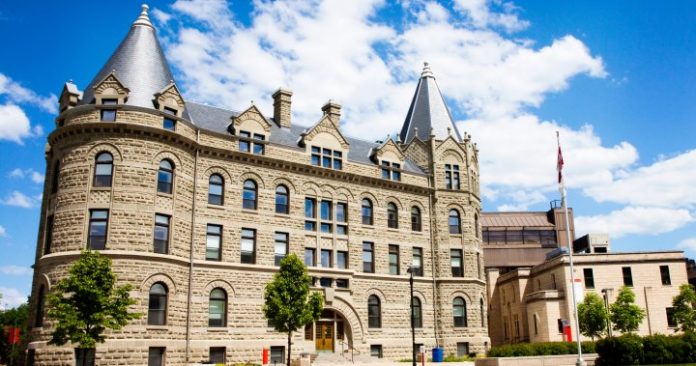Want to discuss? Please read our Commenting Policy first.
A new series of free online courses from the University of Winnipeg’s Prairie Climate Centre are connecting Indigenous knowledge with western science to tackle the problem of climate change.
“We’ve developed some courses that are trying to highlight the adaptation planning for the future of climate change, finding solutions that we can use to be able to adapt as a society,” Prairie Climate Centre research associate Brett Huson told Global News.
“But (we’re) also trying to integrate Indigenous knowledges into the research and development because those are knowledges that spanned thousands of years on this land.
“One of the things we’ve been doing is we’ve been working with a concept called two-eyed seeing…. This focuses on trying to look at Indigenous knowledges in a different light and helping it to be integrated with western sciences.”
Read more: Climate change in our backyard — Manitoba begins to grapple with the consequences
The University of Winnipeg’s @PrairieClimate is launching a series of free online courses focused on building climate resilience and adaptive capacity within Manitoba and across the country. https://t.co/ksKk0KDvIX pic.twitter.com/fHkhm0Uw73
— UWinnipeg (@uwinnipeg) November 2, 2021
On Nov. 10, Mi’kmaw elder Albert Marshall – from Eskasoni First Nation in Unama’ki (Cape Breton), who coined the ‘two-eyed seeing’ term – will guide a conversation along with Huson and PCC director Ian Mauro.
“This helps people understand the perspective from Indigenous knowledge systems, but also how they can be better integrated and how to be able to take the information from Indigenous knowledges and translate them so they can be used in research,” said Huson.
“We definitely geared the program overall to Indigenous communities but also to benefit non-Indigenous communities, because the important thing here is to learn how to develop meaningful and reciprocal relationships between Indigenous communities and non-Indigenous institutions, communities and people.”
Get a roundup of the most important and intriguing national stories delivered to your inbox every weekday.
Get a roundup of the most important and intriguing national stories delivered to your inbox every weekday.






